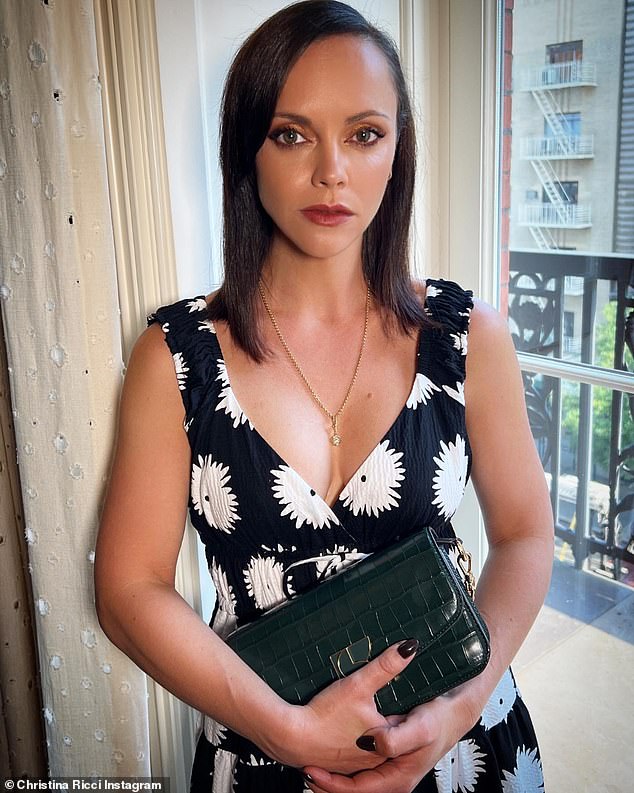“Sometimes people we have loved and admired do horrible things. They might not do these things to us, and we only know who they were to us but that doesn’t mean they didn’t do the horrible things and to discredit the abused is a crime,” – Christina Ricci
There is no road map for navigating a relationship with someone you admired or respected doing something awful to another person.
On September 7, the That ’70s Show star, Danny Masterson, was sentenced by Los Angeles County Superior Court Judge Charlaine Olmedo to 30 years to life in prison after he was convicted on two of three rape counts. He will be eligible for parole in 25 years.
Shortly after the guilty verdict, the judge in the case purportedly received over 50 letters asking for leniency in Danny’s sentence, two of which came from Ashton Kutcher and Mila Kunis (co-stars of Masterson from That ‘70s Show). These letters wound up surfacing online, with Ashton calling Danny a “role model,” while Mila described him as an “outstanding older brother figure.”
Christina Ricci shared a statement on social media that many have taken to be a response to the Danny Masterson sentencing and the support letters written by Mila and Ashton. “People we know as ‘awesome guys’ can be predators and abusers. It’s tough to accept but we have to. If we say we support victims — women, children, men, boys — then we must be able to take this stance.”
Ricci said that she has had personal experience with some of these “awesome guys” and made a call to support victims of abuse.
“Unfortunately, I’ve known lots of ‘awesome guys’ who were lovely to me who have been proven to be abusers privately. I’ve also had personal experience with this. Believe victims. It’s not easy to come forward. It’s not easy to get a conviction,” she added in a second post.
The way we talk about sexual assault in our culture makes it hard to address a situation like this, because rapists are depicted as either faceless monsters with no redeeming characteristics—someone you’d never be friends with in the first place—or misunderstood “nice guys” who didn’t really do anything wrong.
This case and the aftermath with other public figures has unintentionally highlighted one of the most difficult parts of reporting and seeking justice for sexual abuse – that people want to believe the people they associate with over the victim. We (understandably) have a difficult time believing that people we know, admire, and respect can be capable of a crime like sexual assault. We, as a society, have this idea that since “they were perfectly nice to me” they wouldn’t be capable of harming someone else.
So what should you do if you find out your friend has been accused of abuse or perpetrated sexual violence?
Start by believing the survivor.
Often, the desire to protect our friends is overwhelming. But evidence shows that people rarely lie about abuse. Official reports to law enforcement that are made show that only approximately 2-10% are concluded to be false or unsupported, a rate no higher than any other accusation of crime and usually associated with extenuating circumstances such as a history of litigation abuse. This is comparable to the rate of other falsely reported crimes (like theft, kidnapping, etc.).
It is also important to note as well that of these reports, many are not “false” (as in factually proven not to have occurred) but rather “baseless” (unable to be substantiated by law enforcement according to relevant legal definitions), which accounts for the disparity in the percentage. It takes a lot to come forward about domestic violence and sexual abuse, so believing survivors is important. It is also, based on the data, the most logical place to begin.
Believing the survivor can go a long way.
Take time to process.

It can be hard to reconcile these two truths: how do you acknowledge that someone who’s had your back for years, who’s been a friend and an integrated part of your life, can also commit an atrocity?
Unfortunately, even people who are capable of wonderful things are also capable of violence. But, people who cause harm are often as good at finding allies as they are at finding and exploiting the vulnerability in a partner or family member.
Realizing that your friend or loved one is choosing harm can be very difficult emotionally. You will probably experience a large range of emotions including surprise, confusion, and anger – and sometimes all of it at once. Discovering that a friend is abusive or has committed sexual assault will fundamentally alter the way you see that person, and in that way, it is very similar to loss.
Sit with these feelings. Acknowledge them. Allow yourself to feel these feelings safely. This may mean speaking to someone else about it, but if you do, be mindful that you are not putting the survivor in jeopardy by speaking to a mutual friend who might repeat what you say to your friend, to the survivor, or to law enforcement. If you don’t have anyone you can speak to that isn’t a mutual or uninvolved with the situation in question, you can call a domestic violence or sexual assault hotline. Those numbers are for you, too. At Options, our hotline operates 24/7, so if you need to talk to someone about your experience, feel free to call.

Make a plan for moving forward.
This plan is going to vary depending on the specifics of the situation. Every domestic violence and sexual assault case is different, and what you do with this information needs to be handled very carefully so that everyone involved stays safe.
At this point, you might choose support the survivor. If the survivor is open to it, they may ask you for help finding resources, or for emotional support. There is most likely a reason they trusted you with this information if they disclosed to you directly. This means they see you as a safe person.
If you haven’t heard this information directly from the survivor, it may be appropriate to reach out. Be advised that the survivor may not be ready to talk about their situation, so do not pressure them for information.
You might also have a conversation with your friend. This should only be done if it is safe for both you and the survivor to do so, and it should only ever be done with the consent of the survivor. Not getting the consent of the survivor could result in them being harmed further in retaliation, so this is crucially important. It can also be difficult to acknowledge this – but be aware of the fact that your friend may bend the truth of the situation to keep you “on their side.”
Remember that people who do good things are still capable of harm.
You might know your friend as an amazing person who helps out in the community. They may be charming, kind, and charitable. It might come as a complete surprise that this person is abusive. Remember, everyone is capable of choosing harm. While it is absolutely possible to still have compassion and love for this person, those feelings should never cross the line into justification of abusive actions or minimization of the survivor’s struggle. Remember that causing harm in this way is always a choice.
People who are good in public still sometimes choose violence in private. It’s common for unsafe people to intentionally foster a positive public reputation and groom allies as a way of isolating a survivor from potential help and to conceal the harm they’re doing.
Consider distancing yourself from this friend.
Although change is possible, it’s very difficult and takes a lot of time, personal effort, and appropriate support from other people which balances compassion with accountability (rather than collusion or condemnation). If love alone were enough to “change” someone, then there would be far fewer survivors in this world and much less need for crisis intervention services.
The decision to change from someone who causes harm to others must come from the abusive individual alone, and it takes a lot of work and effort. Many individuals who choose harm do so as a pattern of behavior and will engage in this pattern again when opportunity with lack of sufficiently deterring consequences arises.
Strongly consider either distancing yourself from this person or establishing new boundaries and expectations in your friendship: choosing to remain in the friendship with no change at all in your dynamic would be taken as implicit permission for your friend to continue the harm.
Understand that you are not alone in this struggle.
Domestic violence and sexual abuse are complicated issues with a lot of nuances, and they affect countless individuals. You are not alone, and you do not have to feel helpless in the fight to break the cycle of violence. To help end sexual violence, we must start with believing survivors – even when it is those we know committing the harm.
If you need any additional information, have a question, or a concern, feel free to reach out to Options at our 24-hour toll-free helpline 800-794-4624. You can also reach an advocate via text by texting HOPE to 847411 or click 24-Hour Chat with Options.
Written by Anniston Weber




